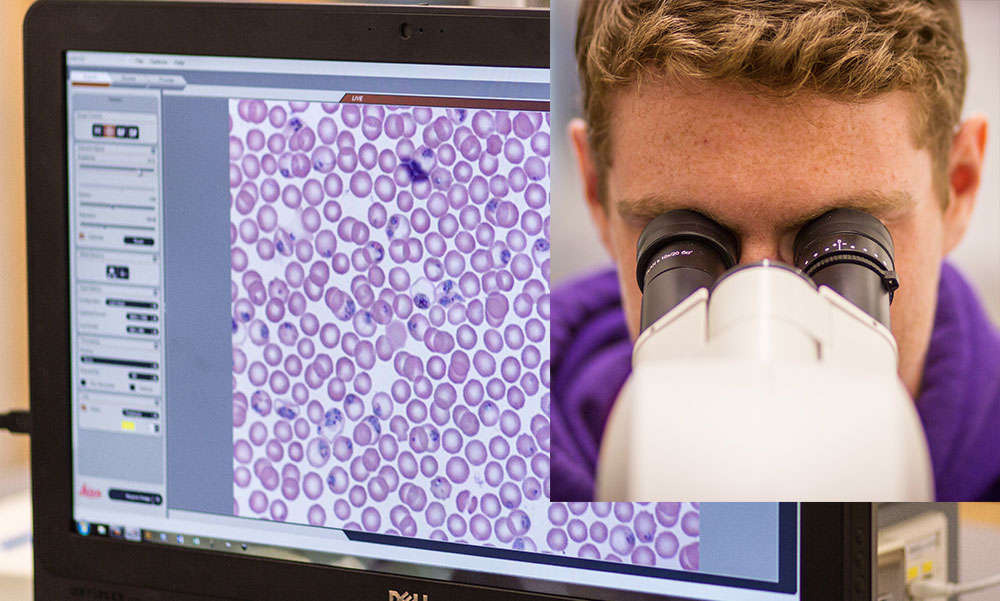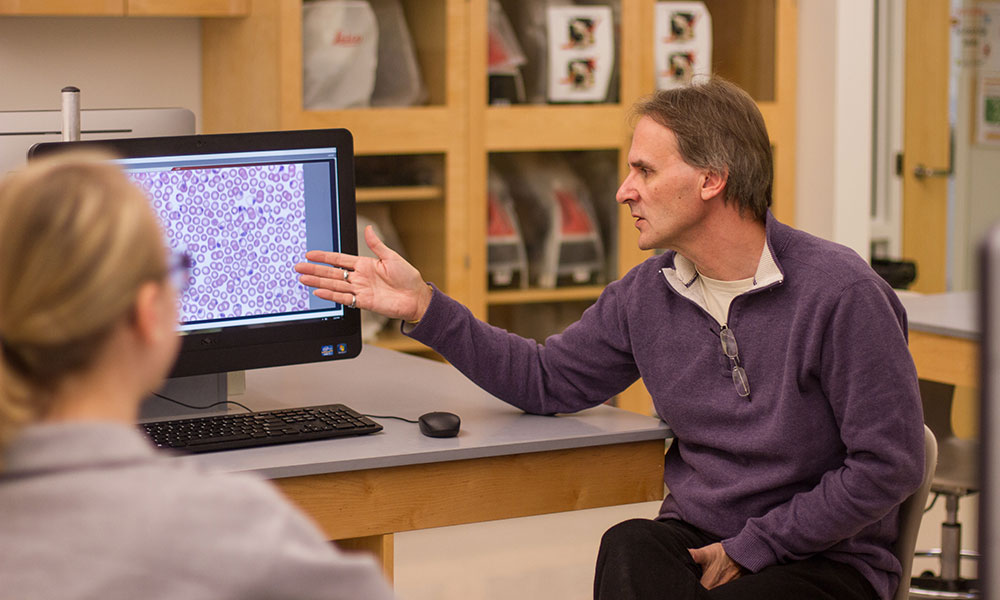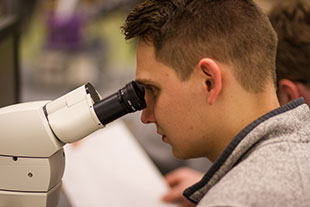How a professor's malaria research has the attention of NIH
Dr. Chris Lantz gets $445,500 grant
Science and Technology
SUMMARY: Dr. Chris Lantz will use the new grant to advance his exploration of how Interleukin 3, or IL-3 for short, works in the body's immune system. In 2010, Lantz and students in a lab he was teaching made a startling discovery about IL 3 - it appears to hamper the body's defense against malaria.

|
Finding new ways to diagnose and fight malaria is pretty important to the National Institutes of Health, and the agency likes the approach a JMU biology professor is taking.
Dr. Chris Lantz recently received a $445,500 grant from the NIH to fund potentially groundbreaking research into the role of a protein the body produces in response to certain diseases. Lantz will use the new grant to advance his exploration of how Interleukin‑3, or IL-3 for short, works in the body's immune system. In 2010, Lantz and students in a lab he was teaching made a startling discovery about IL‑3 — it appears to hamper the body's defense against malaria.
"The interesting thing about IL-3, in the context of malaria, it’s actually a bad thing," Lantz said. "Making this protein is something that exacerbates the disease. We’re finding now, at least in mice, that if you take away this protein the survival of the animals is extended a great deal."
If the research pans out, Lantz said, it could lead to improved clinical approaches to diagnosing and/or treating the disease. "That's always the hope, but like any area of research, my work will have to be confirmed." And go through lots of human testing and approvals.
For now, Lantz and his students are concerned with finding out what cells are responsible for producing IL-3 and the timing involved in its production. To do that, they will study mice with genes that are modified to alert researchers to the presence of IL-3.
"We want to understand the mechanism of how this protein is actually working," Lantz said. "Not a whole lot is known about it. We’ve studied and published in the past a number of things about its role in certain types of allergies and in other parasitic diseases. And so we are now focused on its role in the body’s immune response against malaria."
 A paper Lantz and his students published in 2014 in the journal Infection and Immunity, a publication of the American Society for Microbiology, set the stage for getting the latest grant. "A lot of those initial results are in there. . . . And of course that paper served as evidence that we were onto something," Lantz said.
A paper Lantz and his students published in 2014 in the journal Infection and Immunity, a publication of the American Society for Microbiology, set the stage for getting the latest grant. "A lot of those initial results are in there. . . . And of course that paper served as evidence that we were onto something," Lantz said.
While Lantz, a 1990 JMU alumnus and native of Rockingham County, is pleased with the discoveries so far, he is equally pleased at the level his undergraduate students have been involved. The students "love the work" and a good number of his former students have gone on to graduate schools and into the medical profession, he said.
Also part of the team is Dr. Tracy Deem, an immunologist from Bridgewater College who serves as an adjunct assistant professor of biology at JMU.
"She really contributes a lot to the lab because she is proficient in performing a number of advanced techniques," Lantz said. "And she’s also able to work very effectively with students who are conducting experiments."
A trio of Bridgewater College students will benefit from Deem's ties to JMU this summer, when they will work on the research alongside JMU students.
Lantz, the recipient of this year's Madison Scholar Award in the College of Science and Mathematics, said he anticipates more publications coming from the research funded by this latest grant, which runs for three years.
